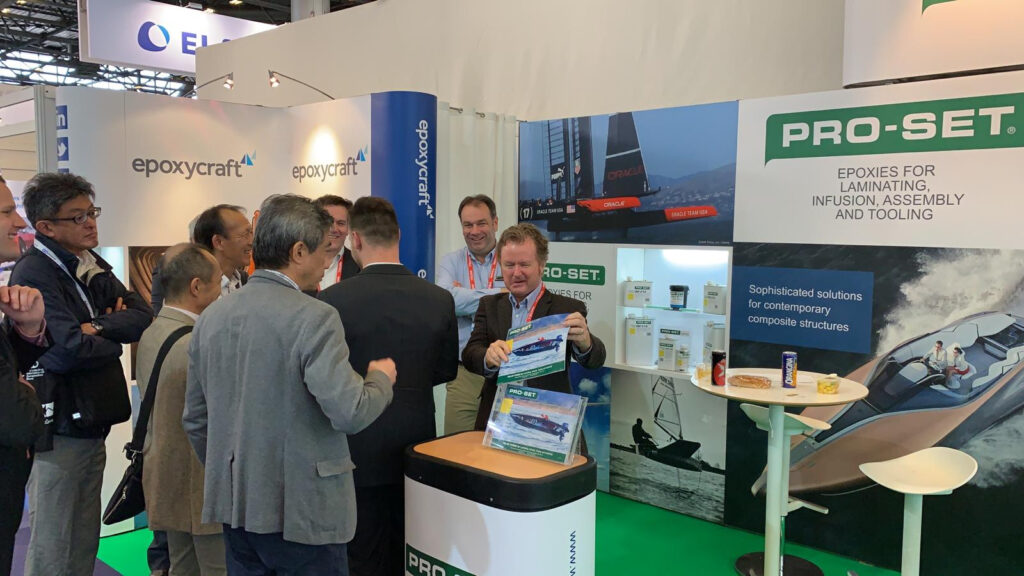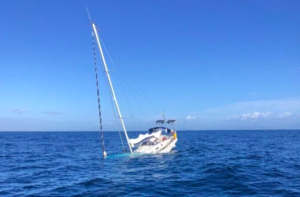Challenges for bio-based epoxy market, says Wessex Resins

In a climate of political, economic and social upheaval, David Johnson, sales director for Wessex Resins and Adhesives, says that maintaining prices for a cost-sensitive market is one of the biggest challenges currently facing the company.
But that’s not as challenging as: “Simply ensuring that we have the product to service our customers. It doesn’t matter what the cost is if we can’t make our products. We took the decision to carry more stock of key raw materials when the supply chain disruption began in early 2020, to ensure that we were able to continue to supply our customers.”
He says the company is delighted to see the supply of key raw materials coming back online, especially as there is so much interest in its latest Pro-Set bio-based epoxies (tailored specifically for composite manufacturers), but prices remain volatile across the fractured supply chains.
Johnson terms the Pro-Set bio-based range as “an inventory of high-performance resins and adhesives”. They’re all based on a product that was previously in a 100 per cent oil-based form. At heart, he says, Pro-Set bio-based epoxies are a laminating, infusion and adhesive-based epoxy systems containing with between 24-32 per cent bio content in the resin component. The bio content comes from a waste stream that would otherwise go into landfill.
The Pro-Set bio-based epoxies started evolving pre-pandemic, and as Johnson says: “Boatbuilding and yacht engineering is very innovative. But, while it’s open to innovation, the whole bio scene is a slow-burn realisation. People have to trust in products, and that happens over time.
“Boats are being made with flax or basalt and bio-based epoxy, but with all these environmental gains, builders need to feel comfortable with what they’re doing, and that will then translate into confidence for the products to be used widely.”
Noting that epoxy wood construction already has a long lifespan, providing that the design stays contemporary, Johnson says the proof of the bio-based products will come with time.
“The mood of everyone is that they’re analysing what they are doing and using bio-based epoxy where they can. If boat builders are already creating a vessel with 100 years of integrity in its structure and aesthetics, there’ll need to be a significant reason to change methods.”
That significant reason is coming as a couple of ongoing case studies with the Pro-Set bio-based epoxies are already providing impressive results.
“With the formulation modifications, they have a respectable bio content with no loss of properties,” Johnson says.
He believes that although there is a price increase for bio-based (born out of sophisticated chemistry to make the high-performance products), builders will soon realise that bio-based offers a huge sales advantage to an environmentally conscious end market.
The custom-formulated, modern, high-performance bio-based epoxies are specifically for composite manufacturers wanting to reduce their carbon footprint and produce lightweight, durable structures for the demanding composite industry. The bio-based products include systems for infusion through to hand laminating, to assembly adhesives. These have been formulated based upon the company’s vast experience and knowledge of the demanding performance criteria needed from epoxy systems.
To discuss the Pro-Set bio-based epoxies visit Wessex Resins at stand(s):12.605 METSTRADE.
Wessex Resins recently announced that a Scottish boatbuilder has embedded electric propulsion into a traditional rudder. That project used West System epoxy, which Wessex Resins also makes (alongside Entropy Resins) under license from Gougeon Brothers Inc.










